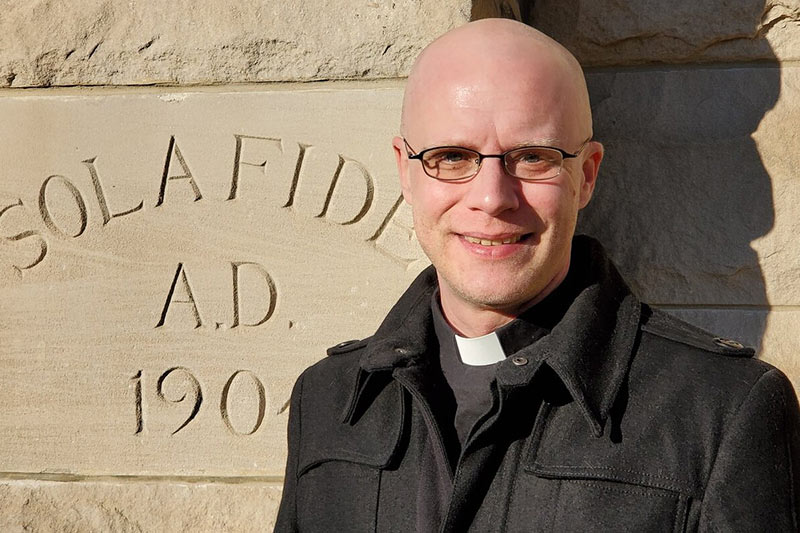Michael Fick: his LSTC memories aren’t tied to a building

When Michael Fick (MDiv, 2004) first heard about the impending sale of LSTC’s property he felt “a kind of sadness.” But as he reflected on the reality of the situation, different thoughts and feelings emerged.
“I began to think about what I loved most about my time at LSTC,” he says. “It was the excellent teaching. It was being in an environment where you were free to ask hard questions, where students and faculty intermingled frequently, and where I had opportunities to learn about people whose experiences were very different than mine. … It dawned on me that none of those memories were particularly tied to a building.”
The challenges of the relationship between faith and place have become ubiquitous this side of the pandemic. In fact, as the leader of the LSTC alumni board and in anticipation of the impending sale of the building, Fick sees opportunities that mirror those of his Andersonville congregation, such as in person worship not being the only option for members of Ebenezer Lutheran Church.
“At this moment I feel like I’m in the process of regathering the flock in a lot of ways,” he says. “We have to reimagine how we are back in person.”
Fick acknowledges that “we all need a little extra grace right now” in a time of palpable political and social flux, but that communities of faith can be the support that people need as they reimagine their lives post-pandemic.
Flexibility, resilience and evolution are necessary, Fick says. “Creating an environment where people can begin to rebuild connections to one another is part of our calling, and it’s part of my calling,” he says. That doesn’t mean that everything will remain the same. In fact, Fick says he has three columns in his mind that he mentally sorts things into:
- Things to restore just as they were because they were awesome then and they’re awesome now.
- Things to reimagine because the world is different, and things can’t work as they did before. But the need for those things remains.
- Things to give a dignified funeral to. Thank them for their service and let them go because the needs they once met no longer exist.
If creating in-person opportunities falls into the first column, Fick says the second column of reimagining has produced equally beautiful realities. One of those realities is expanding the community center component of Ebenezer, which now hosts offices for the American Indian Association of Illinois, the Ghanaian Presbyterian Congregation, and a Zen Buddhist community.
With many different communities and faiths together, Fick sees firsthand the beauty of faith, connection and ritual. “Pastorally, I connect with [this diversity] because it’s an outward expression of how I was formed at LSTC,” he says.
“The impending move of LSTC’s physical space is akin to the reimaging that is going on in many church spaces right now,” he says. “Things may not happen the way they did in the past, but the need for theological education and formation remains. It’s my belief that LSTC will occupy a new kind of space that will allow us to continue our core mission, which remains the same.”
By Rhiannon Koehler, a writer, editor and content director in Chicago.